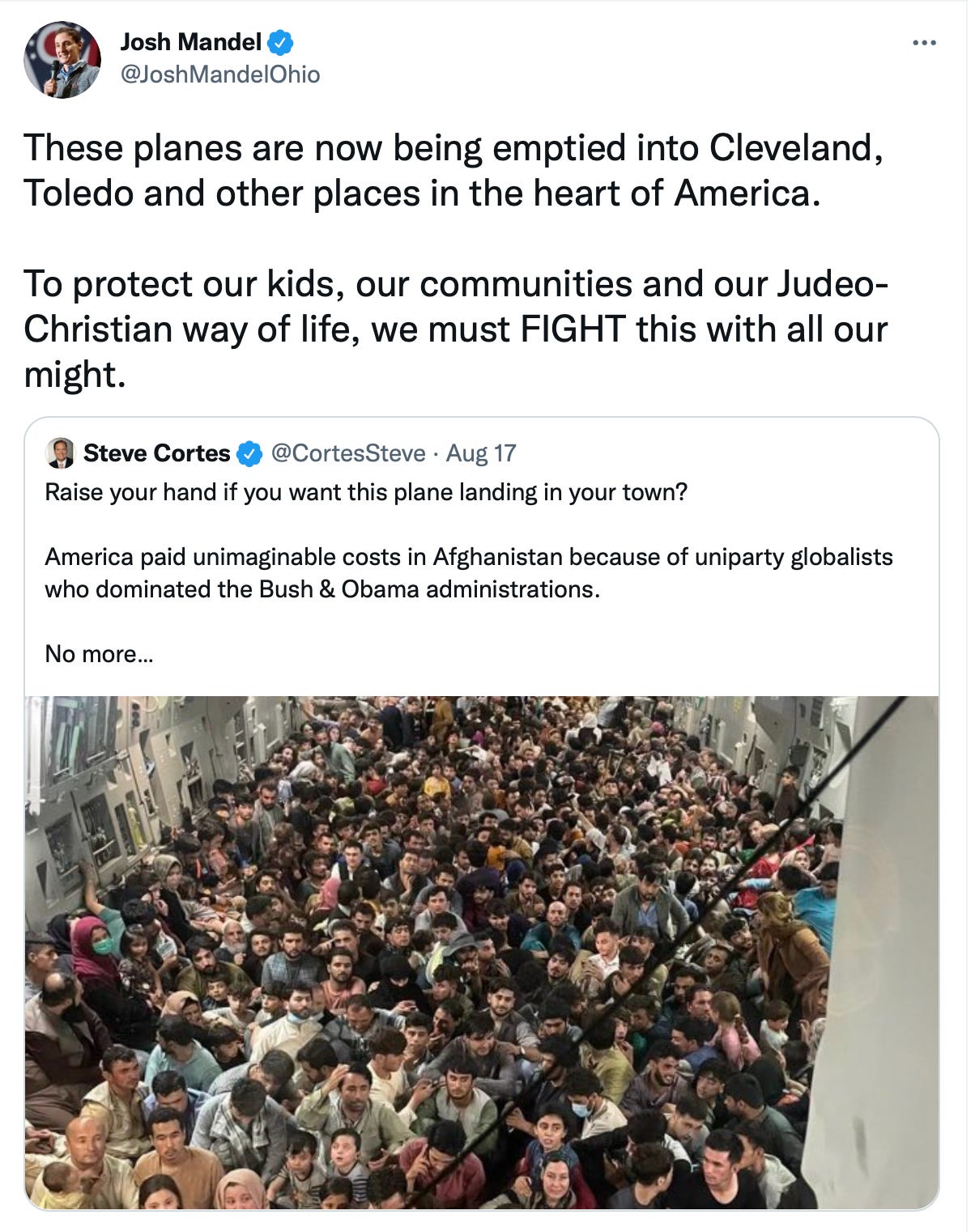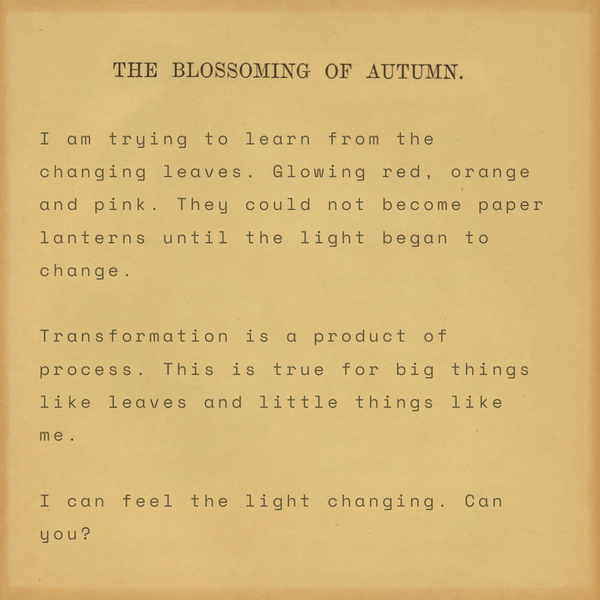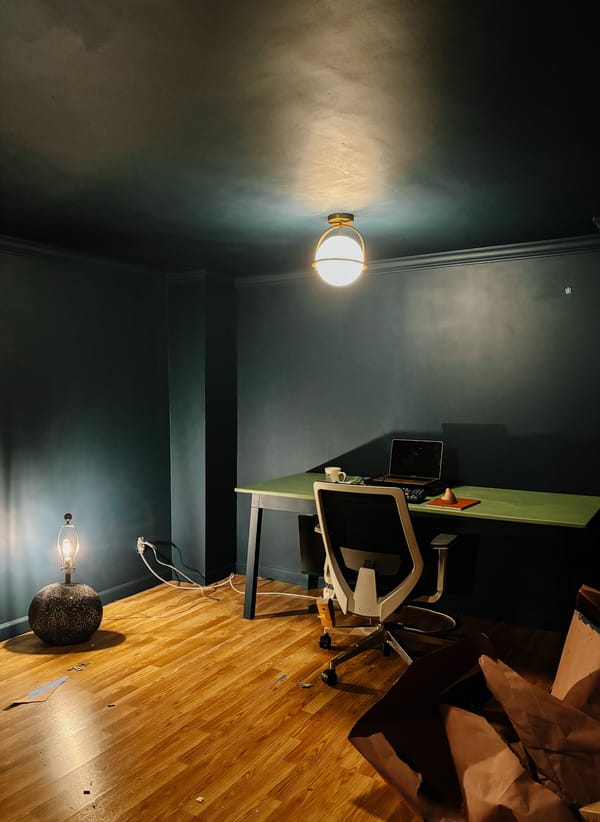Many Happy Returns: A Birthday on September 11
My daughter was born on 9/11. People said I should tell her she was born on the 9/10 instead.

This is not an essay about 9/11. Other people - survivors, victim's families, first responders, New Yorkers, analysts, and those that suffered anti-Muslim hate that day and so many days after - have written fully about 9/11. I expect they will continue to write fully about it, so much loss requires so many words. This is an essay about a 9/11 birthday, Manifest Destiny, justice, spacetime and Wendy's Frostys. Also, Wendy's apparently prefers the plural "Frosty Treats" but I just couldn't bring myself to write that term in this essay.
I had my daughter, Viola, on the tenth anniversary of September 11.
She loves the story of her birth. She always provides commentary while I tell it. Start with how you were worried about having me! I tell her we planned for her. But when it was time for her to come, I got worried. I didn’t know if we’d have enough room in our hearts and our home. Her older sister took up every corner of our tiny house. And she seemed to take up every chamber of my heart. What if there wasn’t enough space for this new baby that took up all the room in my body? There’s always room for me though, huh mom?
When I felt her pushing down against the floor of my body, ready to come out, I dithered. I wasn’t ready for there to be no room. I took a shower, checked my hospital bag, and stopped to get an ice cream on the way to the hospital. It was late on a Saturday night, Wendy's was the only place open. I got a Frosty. That must be why I like Frostys so much, mom.
Viola chuckles knowingly when we get to the part where the nurse didn’t believe me when I told her my labor was going to be shorter than a Lord of the Rings movie. Mom! Maybe she thought you meant the extended editions! She shakes her head when I imitate the nurse yelping when she looked between my legs. When I’d checked into the hospital, I was dilated to 3. Within 45 minutes, I'd progressed to 10. Viola usually finishes the story for me,
“And then! You didn’t even have to push once, Mom. You made a joke and laughed and your laugh pushed me out instead! And then the nurse said, ‘I can’t believe that just happened!’ And later Papa said it was good you named me Viola Honey because it sounds like the name of someone born by laughter. That must be why I like to laugh. And when you held me you knew that our home and hearts always have room!”
Wouldn’t it be easier for her to not be born on that awful day?
I end the story there. I don’t tell her that another nurse asked if I planned on telling my daughter her birthday was September 10th. She said my daughter was born so early on 9/11/11, it hardly counted anyways. And wouldn’t it be easier for her to not know she'd been born on that bad day?
Lots of people asked if I’d tell her she was born on a different day. It never made sense to me. The history of humanity is long. There isn’t a day that isn’t the anniversary of a tragedy. There isn’t a day that isn’t the anniversary of a joy. Every day has been bad and every day has been good. So I told Viola she was born on September 11th, because she was.
I think though, if I am being honest, my every day has been bad, every day has been good answer was too simple. It's passive. What made the days bad? What made them good? My hope was passive too. I felt certain the world my children grew up in would provide more good days than bad ones. I’d been taught humanity would march forward along a line of progress with no fixed end. That progress would be our salvation. I thought that line, that ray, was a fact I observed in the world. But of course, a single line extending into the future would be too narrow to hold all of us. It would too pointed to not harm some of us.
Thank goodness, it doesn’t really exist.
Why did I see something that isn't there? Because of another type of line in my mind. A stria formed by the social learning that begins to shape our brains from the moment we are born. We call this social learning, culture. My mind is furrowed by it. What bits of social learning drew that line across my vision? The Enlightenment, sure. An American prosperity gospel, definitely. Capitalism, colonialism, and white supremacy too. What else and in what measure? I don't know. I can’t always tell one groove from the other, or know what left each mark. The culture that shaped my mind isn't all bad. Some lines its carved are all deep cuts and contrasting colors. But some just collect dirt.
Like Manifest Destiny. Now there's a line. My culture has been pretty into it. You've heard of it, right? It's the 19th doctrine that declared America had a special kind of virtue and it was destined to spread that virtue across the continent. As the virtue settled into west, it would sanctify the land and make it something better. A line moving everyone forward. Why did this doctrine exist?
In Manifest Destiny and Mission in American History, Frederick Merck wrote,
And like, okay. That's possible. Certainly there has always been a religious fervor running through American imperialism. Or maybe they just liked taking things and making money. Or maybe it was both.
Either way, it's difficult to understand how they hoped to make heaven with so much sin - genocide, slavery, conquest and exploitation. Plenty of contemporary Americans felt the same way. In the 19th century, there were heated debates over the morality of American imperialism. By the time I was old enough to read textbooks, Manifest Destiny showed up in many of them as an embarrassing fragment of a noble past. Just a little fun fact in sidebar. Fun fact! Manifest Destiny was the belief that American exceptionalism justified expansion of American territories at great human and financial cost. The right answer to the essay question on a high school history test was definitely three paragraphs on why Manifest Destiny was bad.
But that right answer was undermined by America's continued imperialism and a culture that justified support for that imperialism. The justification offered wasn't profit or power. Those were treated as incidentals. American imperialism was supported by a sense of mission - we were going to build democratic heavens all over the earth. The fact that imperialism never really supported democracy was also treated as incidental. That some countries and cultures might not want ultimately be best served by democracy wasn't treated at all.
Colonizing the future with a conveyer belt powered by Manifest Destiny.
When I think of that single line of forward movement shuttling us all along, I don't see progress or salvation anymore. I see people trying to redeem the present by high example, generated by the potentialities of a new future time for building a new heaven. Colonizing the future with a conveyer belt powered by Manifest Destiny. After the continent, then the world, then time itself!
I guess the motivation behind the continuing expansion makes some sense. The New World was never going to have enough space to redeem the Old.
In 1999, in middle school, rumors about a massacre in a Colorado high school swept through science class. Our science teacher told us we were safe and that everything would be all right. This is America, we would find the shooters, we would make it better. We didn't have to rely on rumors to know about the massacre on 9/11. We watched it happen live in my high school German class. My high school German teacher told us it was time we knew what it was like to be under attack and that everything had always been wrong. This is America, we would find the terrorists, and we would make it worse. Both of them seemed pretty committed to America having a manifested destiny, they just disagreed on what it was.
I watched bombs explode on TV, more buildings fell and the people in them did too.
I thought my middle school teacher was right because our inevitable progress forward would inevitably take us to a better state. I thought my German teacher was wrong because we couldn’t move backwards on a line carrying us forward. I watched America go to war, first in Afghanistan and then Iraq, while I did history homework. I watched bombs explode on TV, more buildings fell and the people in them did too. My textbook and the people on TV told me this was justice and that it would be followed by salvation. There wasn't just one force that lifted our war planes into the air and over Iraq and Afghanistan. But perhaps the most of these was the newly potent form of Christian Nationalism that emerged after 9/11.
In Christianity, salvation conquers death. In Christian Nationalism, salvation requires death.
In Christianity, salvation conquers death. In Christian Nationalism, salvation requires death. America was once again determined to use the militant force of its virtue to build a new heaven in an old world. The force was justified by the demands of justice. We were horribly wronged on 9/11 and so we would punish someone, anyone, everyone to make it right. Maybe Christian Nationalist doctrine requires that kind of justice. But the politicians and pundits and preachers who cited Christian justice as the grounds America's post 9/11 violence were wrong.
On a recent episode of Fireside with Blair Hodges, Adam Miller explains the potential of Christian justice. Miller, a philosopher and theologian, urges Christians to think about the way "Jesus himself goes about describing justice as the business of returning good for good, and the business of returning good for evil. What does justice look like? Justice looks like the law requiring you to respond to anything, whether it be good or evil, with good, in order to make the world itself just."
My children still hear sounds of the war I saw premiere on primetime TV.
I don't think we should replace Christian Nationalism with Christian anything. But Miller's theology is useful in refuting the many perversions of Christian nationalism.
Too often we've preceded evil with evil. Responded to good with evil. Returned evil with evil. Everything was never all right. And everything is still not all right. I guess I still think my German teacher was wrong, but only because this wasn't our destiny. It didn't have to be this way. The people in power - and the people who empower them - chose this. We chose it again and again and again.
The school shootings continue. My middle school daughter had a lockout drill last week. "There are still 1,106 victims of 9/11 "whose remains have not been found."The grief of that morning attends every family of every victim. First responders on 9/11 are still paying for their heroism, they face a higher cancer risk "because of toxic fumes at the World Trade Center site." The increase in anti-Muslim sentiment that followed 9/11 has only grown in the decades since. That hate was the foundation of Donald Trump's Muslim ban. It is the force behind the anti-refugee rhetoric frothing from the Right as refugees flee the mess we made in Afghanistan. Refugees America made cannot find refuge.

We have room.
— Min Jin Lee (@minjinlee11) August 17, 2021
My children still hear sounds of the war I saw premiere on primetime TV. The fighter jets that invaded Iraq train over my backyard. A big roar above our backyard, my three year old claps her hands over her ears until the sound fades. In the first two years of the Iraq War, 5,000 women and children died. In Afghanistan, the death toll climbed while America supported centralized corruption and know-nothing technocrats. Households collapse because of drones carrying our conviction. The children in the Middle East still hear the sounds of war too. They clap their hands over their ears. But the sounds don’t fade. They roar closer and closer until nothing can ever be heard again. Americans certain they knew how to build heaven instead made a hell.
If you asked her if America can save the world, she’d feel confused by the question. It’s not even saving itself.
When Viola turned seven, her friend asked her if she “hated being born on the worst day in the world.” Viola was confused. So that's when I told her about the September 11 attacks. She brings it up every birthday. It makes her sorrowful. She holds that sorrow along with other sorrows: border separations, refugee camps with too many people and not enough water, police who hurt instead of help, homeless encampments in cities that will not build homes. If you asked her if America can save the world, she’d feel confused by the question. It’s not even saving itself.
So I guess that line of western progress isn’t carved into her brain. But I hope inevitable inertness doesn't take it's place. I am tired of destiny. Maybe instead she’ll grow up knowing what I think I know now. There aren’t any straight lines to heaven or hell. Mostly humanity remains in constant orbit. We circle different stars but we're held in orbit by the same forces.
A certain type of American freedom is worth the death of children - it's a war cry long shouted abroad and now hissed at home.
This Saturday is the twentieth anniversary of the September 11th attacks. It’s also my daughter’s tenth birthday. She cannot be vaccinated yet. Despite the pleading of many parents, she lives in a country unwilling to protect her. The Delta Variant is a reality made by cultural claims scratched into our minds. A certain type of American freedom is worth the death of children - it's a war cry long shouted abroad and now hissed at home. So for the second year in this pandemic, my little girl cannot have a birthday party. Not such a big thing, perhaps. It's hard to get worked up about a party when I know so many parents are pacing in ICUs. I told her we would make up for the lack of friends with an abundance of decorations.
I wonder what other shelves will be empty in the coming months.
We went shopping for the decorations last weekend. Walked through three stores full of empty shelves. A lack of party decor isn’t a crisis. But I wonder what other shelves will be empty in the coming months. At the last store, a cashier shook her head, “Supply chain is having trouble." She pointed to the few decorations. If you wanted to throw a very specific kind of party - Over the Hill with canes and tombstones or a pastel Baby’s First Birthday - they had what you needed. If you were a nearly ten year old girl, trying to find streamers and a banner that captured “certainly no longer plays with dolls but also certainly does still play with dolls” you were a bit out of luck. We went all in on balloons and decided to make the rest out of glitter and construction paper.
On the drive home, Viola asked me to tell her the story of when she was born. I started it and she finished it. But this time, I added an epilogue. I told her about the nurse who thought we should pretend she was born on September 10th.
“September 11 was a pretty bad day. Why didn’t you tell me I was born on September 10?”
She considered this new information, “September 11 was a pretty bad day. Why didn’t you tell me I was born on September 10?”
“Oh, Viola. I guess I am tired of stories that are supposed to make us feel better. What's the point of feeling better because of a lie? Let's just be honest, you know? About everything. Denying the bad doesn't give us more good and embracing the good doesn't require dismissing the bad. The truth is September 11, 2001 was a very bad day. With lots of bad days before it. And lots of bad days after it. But the day you were born was very good. Remembering that might help us remember the importance of making more good."
That was about as much as a nearly ten year old with no party decorations could digest. But someday I'll draw her a circle. Moving my fingers around it, I'll say,
"We aren't moving to a better place. This is where we are. And always will be. There's no nice narrative or convenient lie that can change where we are. That might make some people feel trapped. But it shouldn't. A circle is also the shape of good returned for bad, the bad we've done, the bad done to us. So it's the shape of justice. And that return of good for bad is redemption. So it's the shape of heaven too. And if we pulled from each side and opened this circle into a sphere? Well, it might still not feel big enough for all of us. But a fun thing about spheres is that they have the smallest surface to volume ratio of any shape. So their outlines sometimes make us underestimate their contents. There's room in a sphere. Spheres bear pressure well. There's no angle or corner to take it all alone. Every bit of a sphere's surface bears the pressure.
Did you know that some people say that space and time are made of something like a fluid? Fluids contract to the smallest possible space. The contraction happens because every single molecule is pulling on the other. This contraction is why water forms droplets! Water would form spheres if gravity wasn't getting in the way. If spacetime is like a fluid then it's always contracting into the smallest possible space. That smallest possible space must look like a sphere.
We are in this round," and here I'd circumnavigate the flat circle with my hands again, "because the four dimensions of our existence are constantly pulling toward each other to make roundness. Roundness is the shape of existence. When we draw lines with beginnings to meet our own ends, we deny reality and hurt one another. But when we pull toward one another, fiercely, we make room and we create strength. We return and we redeem. We are returned and we are redeemed. We make heaven."
Instead of saying all of that, I drove to Wendy's and got us a couple of Frostys. Maybe we'll circle back when she turns eleven.




